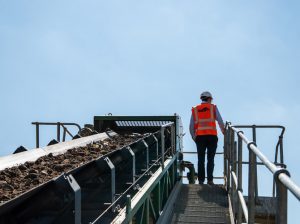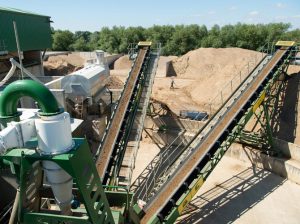The government has set a target for the UK to become carbon neutral by 2050, after declaring an ‘environmental and climate emergency’. It has put clean growth at the heart of the UK’s industrial strategy as part of its ambition to become net zero within 30 years.
Recent government data shows the construction, operation, and maintenance of the built environment accounts of 45% of total UK carbon emissions. Furthermore, 32% of UK landfill waste is from the construction and demolition of buildings.
While the statistics are alarming progress is being made in the construction industry and we are seeing an increasing number of developers building low-carbon properties and using sustainable construction solutions in projects.
The construction industry can, and must, play a leading role in helping society achieve a carbon neutral future.
But how can we, as an industry, accelerate the rate of progress? Tara Sheehan, Finance Director at the Sheehan Group looks at some key solutions.
Strategy
To transform the rate of positive change will require companies instilling sustainability at the centre of corporate strategies and values. They should then shape the decisions and actions of companies and their teams, rather than being merely a statement on a website.
On this basis more projects would consider environmental and social elements at the research and planning stage, alongside economics. This would ultimately lead to construction briefs containing clear sustainability deliverables and carbon footprint metrics on a consistent basis. This would be a major step forward and ensure project managers deliver an increased volume of sustainable developments that meet ambitious targets.
Delivering projects with a long lifespan requires a collaborative approach at the planning stage involving the client working closely with key stakeholders on the overall strategy. This can enable full sustainability planning to be detailed effectively.

Sustainable materials
The good news is there are already a high-quality range of sustainable materials available for contractors to use from innovative materials through to modular construction solutions. There are various sustainable products to help build, heat, cool and light buildings. Common products include solar panels, biomass boilers and energy efficient lighting, through to cross laminated timber, plant-based insulation, and sky gardens encompassing green roofs and walls. Sky gardens are an innovative way to contributing positively to reducing climate change and enhancing biodiversity and green spaces in urban areas.
At the Sheehan Group we produce recycled aggregate, sand, concrete blocks, and ready-mix concrete from waste materials. They are produced by recycling construction and demolition waste, destined for landfill, and turning it into reusable materials. The process reduces the demand on the environment for natural resources and the pressure on landfill. Our concrete blocks, for example, contain a minimum 75% recycled aggregates and are environmentally engineered to meet UK and European technical standards.
This Circular Driven Economy process of re-using waste in construction and using it locally can play a key part in enhancing sustainability across the UK. Sustainable construction must cover every step of the construction process to maximise long-term positive impact. This means examining the entire building process, rather than focusing purely on the structure. This can include electric vehicles to deliver products and using hybrid generations instead of diesel ones.

Innovation
The construction industry needs to continue to invest in research and development, as technology will certainly continue to drive change. Alongside that a continued effort to enhance awareness of the products and solutions that are available is also important in driving the adoption of sustainable practices.
Ultimately the advances in eco-friendly designs for new net-zero buildings will result in buildings giving back more than they consume by using smart solutions. These types of builds therefore need to become mainstream and embraced by major housebuilders. Identifying any skills gaps nationally is also important so that investment can be channelled effectively to develop the expertise and resource we need on a national level.
Cultural shift
2050 may seem a long way off, but the next five years are crucial to achieving the target to become carbon neutral. Leaving real change until the proverbial last minute will certainly result in failure. It therefore requires a major cultural shift in the minds of everybody: government, policy makers, corporations, local authority planners, employers, contractors, and consumers. This will likely require a combination of legislation, leadership, and psychology. It will certainly require a change in how we work and, crucially, how we think and behave.
In the construction industry this means focusing on delivering sustainable outcomes at every stage of a development. Relying on what has worked in the past can no longer be the standard way to operate. We need urgent change to make significant in-roads into cutting carbon emissions. It means strong communication and education to ensure decision makers in the industry understand the options available to them to make sustainable decisions.
Developers and architects alongside planning departments, policy makers and statutory bodies can play a key role in this. They can drive positive change. We now have a huge opportunity to demonstrate our sector is progressive and lead positive change ourselves as an industry, rather than wait for further instruction from government. We have no time to lose and so much to gain.
If you would like to discuss how your organisation can adopt sustainable construction practices please get in touch here.